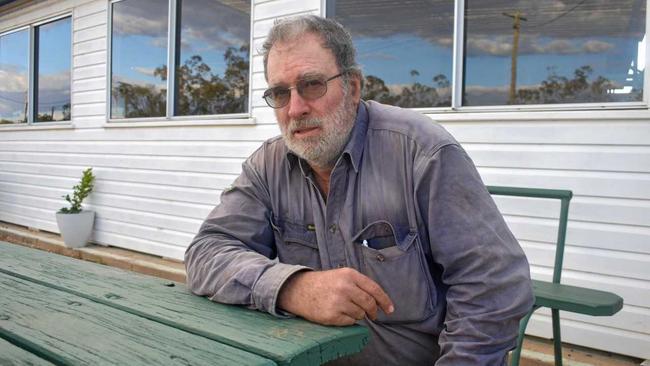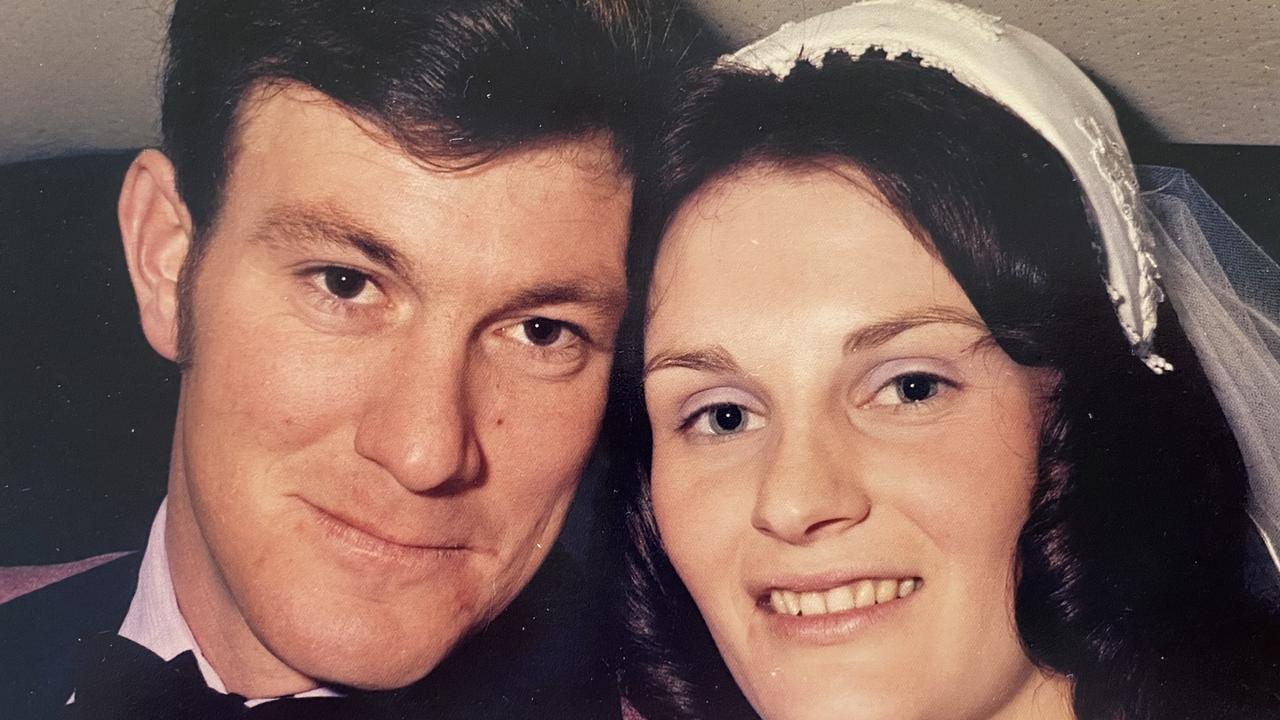Grazier speaks out: 'I've been depressed my whole life'
'I AM on antidepressants and sleeping pills, and I just try and keep myself busy.'

Coffs Harbour
Don't miss out on the headlines from Coffs Harbour. Followed categories will be added to My News.
PAUL Nimmo sits outside the Federal Hotel in Wallumbilla. He's a well-known local, having grown up in town and still today works alongside his brother on their family property.
Today he's not feeling his best, but he's feeling better than he has in the past.
Twenty years ago, Paul went to see his GP after a particularly bad bout of sleeping issues.
He was diagnosed with depression, a condition the 55-year-old admits he's probably lived with since he was eight.
Paul said if he had not reached out for help when he had, his life might have taken a different path.
"I sought help 20 years ago and I'm glad I did, because it stopped my suicidal thoughts," he said.
"I've been experiencing severe depression ever since, and only when I went on the one lot of medication some years ago and it started to work did I realise I'd been suffering for a lot longer.
"I'm on antidepressants and sleeping pills, and I just try and keep myself busy.
"I did consider suicide years ago, but I found you can get through it so I haven't thought about it since."
With a doctor's referral, Paul made the four-hour journey to Toowoomba only three times to see a psychiatrist.
"I had to travel every time to see him, but he's the one who first got me onto the drugs I still take - they're the only ones that have done anything," he said.
"They're the only ones that have ever properly helped, they improve my mood. I'm not always 100 per cent, I had to go off them because I couldn't afford them but I'm back on them now.
"That psychiatrist retired years ago, and I never went back to see anyone else because I haven't found anyone I click with, and there's no visiting psychiatrist that comes out, which we need.
"I think the travel deters people."
Paul admits that while there are more conversations about mental health than there were 20 years ago, there's still not enough help available for people living in rural locations.
"I talk to some of my family and friends about things, I think it's important. I know men in similar positions as me, and I think it's common," he said.
"I think what sometimes helps is knowing that people are there for you to talk to."
ARE YOU BOGGED?
FOR MARY O'Brien, that's what can be so tricky about dealing with men's mental health, particularly those living in rural locations.
The spray drift expert-turned-author behind the Are you Bogged Mate? article that went viral in 2018, was frustrated by experts continuing to miss the mark and failing to understand the way rural men work.
"It all started with a couple of suicides in very close succession in my area, and watching the impact it had on the whole community, and particularly the blokes left behind," she said.
"Everyone was struggling with answers and understanding it, and I questioned my skill set in knowing how to deal with it, especially because I deal with so many men, and wondering if I had the skills to identify when blokes were struggling and in that sort of head space.
"I found a lot of information about rural men's mental health and everything was saying 'we need to change this' or 'we need to change that' and I didn't think that was right, because they're OK the way they are, maybe we just need to change the way we approach their mental health."
Ms O'Brien's article clocked up more than 18,000 page views over two weeks in Australia alone, with farmers from as far afield as Canada and Europe also responding to it.
"It got so much feedback from men saying 'finally, someone understands us' and I think that's where a lot of mental health programs have just missed the mark," she said.
"They don't understand the demographic, they just want them to fit into this textbook mould of sitting on a couch, and to open up about their issues that way but that's not how rural men operate."
For Ms O'Brien, her mission now is to bridge that gap, and she's using her spray-drift background to do so.
"I try and talk to them in their spaces, in their comfort zones," she said.
"For a long time, rural people seem to have prided themselves on their resilience, their ability to shrug off hardships and pass it all off with a she'll be right, mate'.
"But what if they're not, what if they don't know that it's OK to not be resilient and we keep telling them they are," she said.
"Maybe they just need to go away fishing for a week. Maybe they just need to unwind, de-stress and just hang with their mates. And that becomes more difficult in drought times, but we need to make sure we're allowing them to make it a priority."
Ms O'Brien said while she was doing what she could to have those conversations with rural men, at the end of the day the best person to talk to was their local GP.
"That really is a good place to start. We're lucky to have so many good doctors in our rural towns," she said.
"If you broke your leg, would you just drag it around the farm for the next few months, waiting for it to fix itself? No. What's your most important asset on your farm? It's you."
TOUGH TIMES
WHILE statistics show a correlation between prolonged drought and the mental health effects it has on rural people, Ms O'Brien said this year in particular she had noticed things have become far worse.
"For some reason, 2019 seems to have been tough on all sectors of agriculture, where we'll often see one sector really hurting whether that be sheep or cattle... but for some reason, this year it's every sector," she said.
Industry body AgForce is also concerned with the increasing pressures the drought is putting on the mental health of landowners, with it often in their nature to not reach out.
"The rural industry consists of notoriously private people, who are unlikely to seek assistance for mental health issues and rely on family members for support," AgForce Southern Inland Regional Manager Sharon Purcell said.
"We are aware of the dangers of self-management of mental health, and we urge members to seek professional help for themselves and family members.
"Drought stress in southern Queensland is being strongly felt, and the issue becomes alarming when drought conditions continue to build over a longer period, affecting the sustainability of rural businesses and the mindset of farmers and producers."
Ms Purcell said AgForce regularly presents the awareness of mental health as integral to building strong rural businesses.
DO YOU NEED HELP?
Lifeline 13 11 14
Beyond Blue 1300 224 636
Queensland Health mental health call 1300 642 255
Alcohol & Drugs Information 1800 177 833
Kids Help Line 1800 551 800
Mens Info Line 1800 600 636
Parentline 1300 301 300
Health Line 13 432 584
Charleville Mental Health Service 4650 5000
Roma Mental Health Service 4624 2977
St George Mental Health Service 4620 2265
South West Health Service District acute care team after hours 4616 5210
WANT TO SHARE YOUR STORY?
If you have a story to share about your experience with mental health, and how you accessed mental health services in regional Queensland, please contact Ellen Ransley on 4578 4104.
Originally published as Grazier speaks out: 'I've been depressed my whole life'


